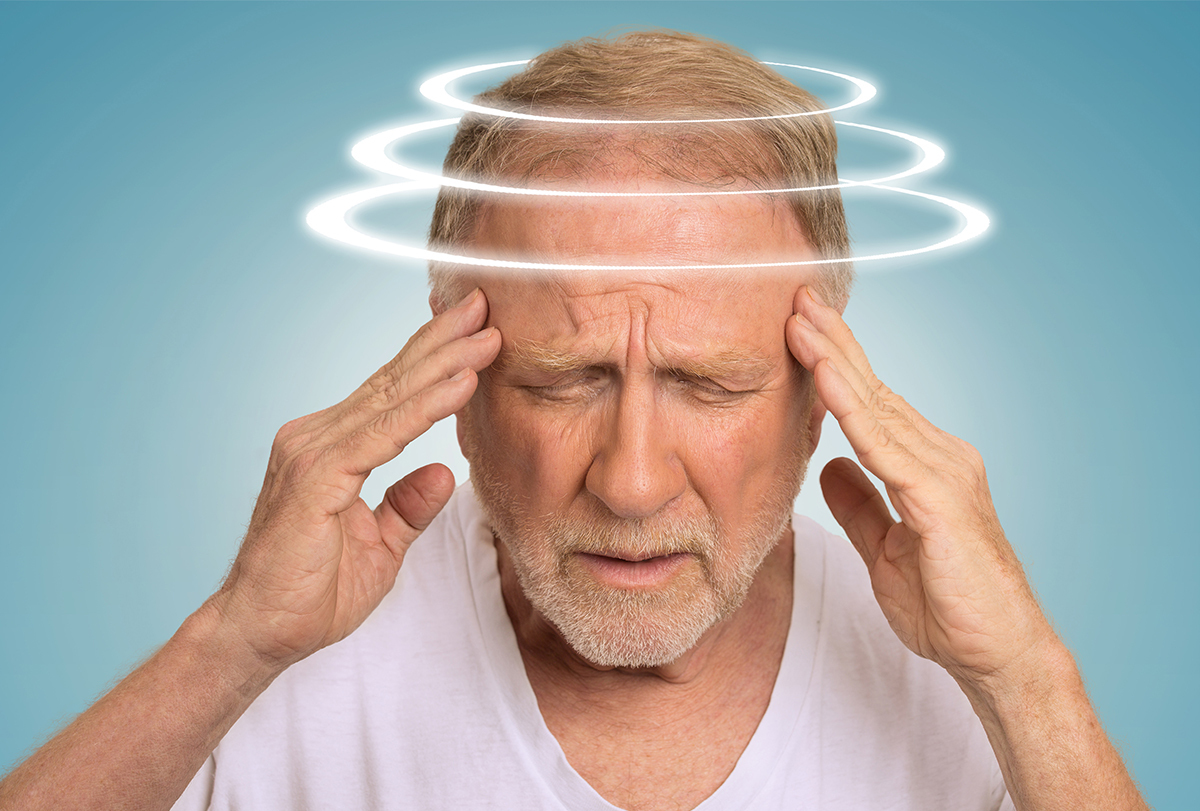Is vertigo curable? This question plagues many individuals who experience the debilitating symptoms of this condition. In this comprehensive guide, we delve into the nature of vertigo, exploring its causes, diagnosis, treatment options, and lifestyle modifications that can help manage its impact.
Join us as we unravel the mysteries surrounding vertigo and empower you with knowledge to navigate this condition.
Vertigo, a sensation of dizziness or spinning, can significantly impair daily life. Understanding the underlying causes and available treatments is crucial for effective management. This guide provides a comprehensive overview, arming you with the information you need to take control of your vertigo symptoms.
Vertigo Overview
Vertigo is a sensation of spinning or dizziness that can be caused by a variety of factors. It is often accompanied by nausea, vomiting, and difficulty walking. Vertigo can be a sign of a serious medical condition, so it is important to seek medical attention if you experience any of these symptoms.
Common Symptoms
The most common symptoms of vertigo include:
- A spinning sensation
- Dizziness
- Nausea
- Vomiting
- Difficulty walking
Common Causes
Vertigo can be caused by a variety of factors, including:
- Inner ear problems
- Head injuries
- Certain medications
- Stroke
- Multiple sclerosis
Types of Vertigo

Vertigo is a condition that causes a person to feel like they are spinning or moving when they are not. There are two main types of vertigo: peripheral vertigo and central vertigo.
Vertigo can be a distressing condition, but the good news is that it is often curable. In some cases, vertigo is caused by stress, which can lead to anxiety, panic attacks, and other symptoms. If you are experiencing vertigo, it is important to consult a doctor to rule out any underlying medical conditions.
Once any medical causes have been ruled out, you may want to consider exploring stress-reducing techniques to help manage your vertigo symptoms. Click here to learn more about vertigo caused by stress.
Peripheral vertigo is the most common type of vertigo. It is caused by a problem in the inner ear, which is responsible for balance. Conditions that can cause peripheral vertigo include:
- Benign paroxysmal positional vertigo (BPPV)
- Ménière’s disease
- Vestibular neuritis
- Labyrinthitis
Central vertigo is less common than peripheral vertigo. It is caused by a problem in the brain, which is also responsible for balance. Conditions that can cause central vertigo include:
- Stroke
- Multiple sclerosis
- Brain tumor
- Migraine
Diagnosis and Treatment Options
Diagnosing vertigo involves a comprehensive evaluation of symptoms, medical history, and physical examination. Diagnostic methods may include:
- Dix-Hallpike Maneuver:Assesses for benign paroxysmal positional vertigo (BPPV).
- Head Impulse Test:Evaluates the vestibulo-ocular reflex.
- Caloric Stimulation Test:Uses warm or cold water to stimulate the inner ear.
- Vestibular Evoked Myogenic Potential (VEMP) Test:Measures electrical activity in response to sound or vibration.
- Imaging Tests (e.g., MRI, CT Scan):Rule out underlying structural abnormalities.
Treatment options for vertigo vary depending on the underlying cause:
Medications
- Anti-nausea medications:Control nausea and vomiting.
- Anti-vertigo medications:Suppress dizziness and motion sickness.
- Sedatives:Reduce anxiety and improve sleep.
Physical Therapy
- Vestibular rehabilitation therapy:Exercises to improve balance and eye-head coordination.
- Canalith repositioning maneuvers:Specific head movements to treat BPPV.
Surgery
Surgery may be considered for severe or persistent vertigo caused by underlying structural abnormalities, such as a tumor or nerve damage.
The efficacy of treatments varies. Medications provide temporary relief, while physical therapy aims to improve long-term balance and stability. Surgery is typically reserved for cases where other treatments have failed.
Potential side effects of treatments include drowsiness, nausea, and balance problems. It’s important to discuss the risks and benefits with your healthcare provider before starting any treatment.
Lifestyle Modifications

Managing vertigo can be aided by adopting specific lifestyle changes. These include dietary modifications, engaging in suitable exercises, and implementing stress-reducing techniques.
Dietary modifications involve maintaining a healthy and balanced diet, avoiding foods that may trigger vertigo symptoms, and staying adequately hydrated.
Exercise
Regular exercise can help improve balance and reduce vertigo symptoms. Choose exercises that do not aggravate your symptoms, such as walking, swimming, or tai chi.
Stress Reduction
Stress can worsen vertigo symptoms. Incorporate stress-reducing techniques into your daily routine, such as yoga, meditation, or spending time in nature.
Outlook and Prognosis
The prognosis for vertigo depends on the underlying cause. Benign positional vertigo (BPPV) usually resolves within a few weeks or months with simple maneuvers or exercises. Meniere’s disease can be managed with medication and lifestyle changes, but it can sometimes cause permanent hearing loss and vertigo.
Factors that can influence recovery time include the severity of the vertigo, the underlying cause, and the individual’s overall health. People with mild vertigo may recover quickly, while those with severe vertigo may take longer to improve.
Support and Coping
- Join a support group for people with vertigo.
- Talk to your doctor or therapist about coping mechanisms.
- Learn relaxation techniques such as yoga or meditation.
- Get regular exercise, which can help improve balance and reduce dizziness.
- Make lifestyle changes to reduce your risk of falls, such as using a cane or walker.
Case Studies and Research: Is Vertigo Curable

Case studies and research provide valuable insights into the experiences and outcomes of individuals with vertigo. These studies help healthcare professionals better understand the condition, develop effective treatments, and improve patient outcomes.
Case Studies
Case studies document the experiences of individuals who have experienced vertigo. These studies provide detailed accounts of symptoms, diagnosis, and treatment. They offer valuable insights into the challenges faced by patients and the effectiveness of different treatment approaches.
Research Findings, Is vertigo curable
Research studies have investigated the effectiveness of various treatments for vertigo. These studies have evaluated the efficacy of medications, physical therapy, and surgical interventions. Research findings have helped guide clinical practice and improve patient outcomes.
- A study published in the journal “Otology & Neurotology” found that vestibular rehabilitation exercises significantly reduced vertigo symptoms in patients with benign paroxysmal positional vertigo (BPPV).
- Another study published in “The Lancet” reported that the medication meclizine was effective in reducing the frequency and severity of vertigo attacks in patients with Ménière’s disease.
Summary

In conclusion, the curability of vertigo depends on the underlying cause and individual circumstances. While some forms of vertigo may resolve spontaneously or with simple lifestyle adjustments, others may require medical intervention or ongoing management. Consulting with a healthcare professional is essential to determine the appropriate course of action and achieve optimal outcomes.
By understanding the nature of vertigo and embracing effective strategies, individuals can effectively manage their symptoms and regain a sense of balance in their lives.
